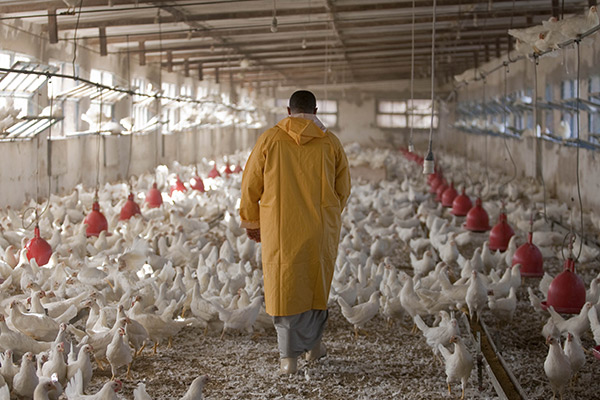Chicken Legs, Let’s Not Slaughter our Poultry Farmers!

Housewives say it now. In several markets, the stalls are now flooded with chicken legs, probably of foreign origin, and sold at unbeatable prices. With 2000 CFA francs, a housewife can afford a kilo of chicken legs, whereas it takes between 5000 and 6000 CFA francs to afford a whole chicken. How is it possible? The answer is obvious: imports of chicken offal have resumed, despite an official ban dating from 2005, which has not been officially lifted. There is no need to recall that this was following the outbreak of the H5N1 fever or avian flu epidemic, which hit the world. Finding itself miraculously spared from this epidemic, Senegal took the opportunity to close its borders to any entry of chicken and its by-products.
This courageous decision was a boost to a sector which, before this measure, was in agony. Not only did local players benefit greatly from it, but some took advantage of it to set up promising sectors. The expansion of an industry like Sedima dates from this period, to speak of those who have been most successful. But it wasn’t just them. Even the flour mills which were stagnating, having difficulty selling their products, were able to significantly improve their turnover, to the point of pushing others to launch into the poultry feed production business. The development of poultry farming also benefited agriculture, which found outlets for crops such as corn, millet and other cereals, which the authorities were keen to promote.
Read the column: Bceao Against the Economy
This is how we were able to see poultry farming go from losses estimated at more than 30 billion CFA francs in 2005, to which was added a significant loss of jobs, to a situation where the entire sector, all sectors combined, generates around 450 billion CFA francs, if we base ourselves on the figures revealed by the former Minister of Livestock, Mr. Aly Saleh Diop, in January of this year. According to the data he presented, last year the sector produced 135,000 tonnes of poultry meat, for 1.3 billion tonnes of eggs, all a very sharp increase compared to previous years.
Of course, all is not rosy in the world. The import crisis, following the Covid-19 epidemic and the war between Ukraine and Russia, and especially the sanctions and blockades which hit the exports of these two very important countries with regard to the production of cereals, has had a terrible impact on poultry farmers. Poultry feed prices continue to soar, discouraging many small producers.
This, especially since local cereal producers have not been encouraged and supervised to encourage them to produce more, and especially to improve the quality of their production, so that local processors can easily integrate them into the food production chain.
Read the column: Migrations, Stop the Wave
So, insidiously, the authorities watch smugglers violate the ban measures imposed, and gradually introduce products of dubious origin and quality… In this context of severe food crisis and soaring prices of food products, current consumption, the availability of these “thighs” seems to suit small consumers, but even more so, that of our authorities. It is indeed better to have food of lower quality but at a good price, rather than overpriced or simply inaccessible products. Let’s not forget that the elections are on the horizon. A calculation that can hold in the short term.
In the long term, however, we know what this will mean for us. We experienced this transition before 2005. An invasion of low-end food products will end up killing local production, and even those who today consider themselves “very big” will not survive. We are talking here about products coming from Brazil or the United States, where they have been subsidized with billions, fed with hormone-based products.
Landed in Dakar, they are still ten times more competitive than ours, produced in compliance with all hygienic standards and with little support from the State.
Read the column: Senegalese Onion, Let’s End the Teary Debate
Like the EU, these two countries have always lobbied for the lifting of the ban on chicken products. They have paid expensively for campaigns of all sorts to get these results. The Senegalese State with support of its actors, has been able to resist up to now. At the time when we would have finished counting the canoes filled with young people in search of an Eldorado crossing seas and oceans, we should not discourage those who believe in their country and have decided to invest and create added value.
By Mohamed GUEYE / mgueye@lequotidien.sn

